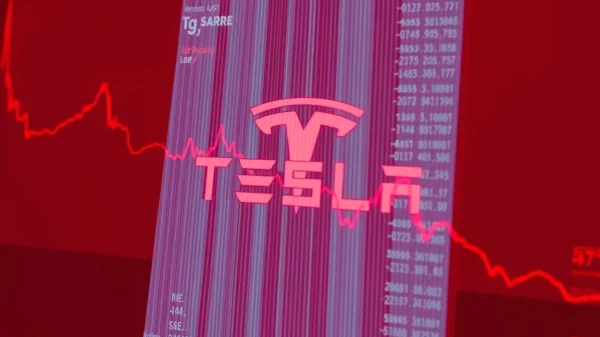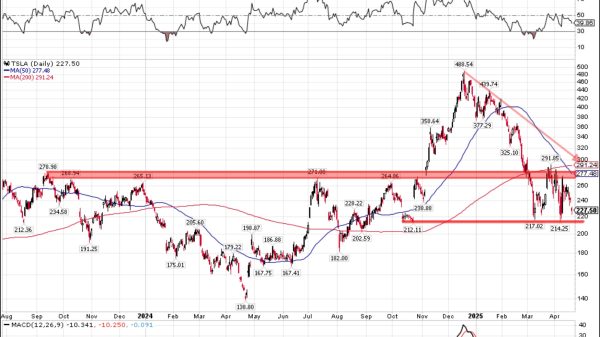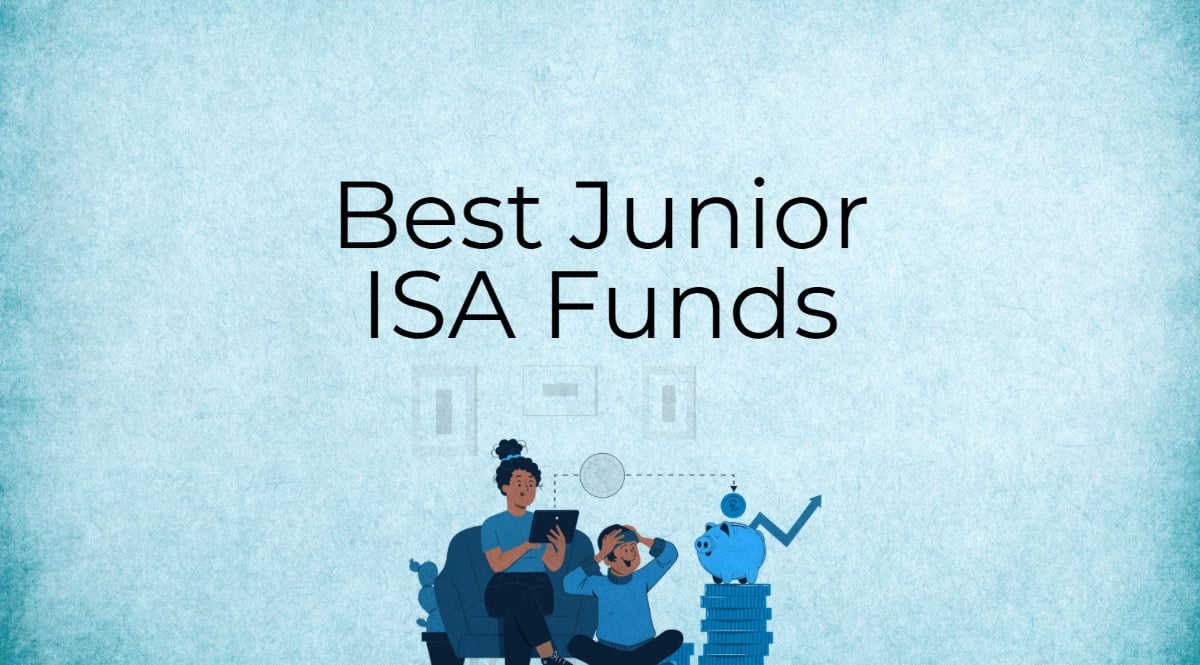Best Junior ISA funds for those under the age of 18
If you have ever had a conversation with another parent regarding saving or investing for your children, chances are you have come across a Junior ISA, also known as JISA. It is one of the most popular methods of setting aside money for their future, but what exactly is it, and how does it function?
A Junior investment ISA is a tax-free option for saving or investing on behalf of your children. This implies that you are not required to pay any income tax (on the interest you earn from savings), dividends tax (on any dividends received from stocks and shares), or capital gains tax (on any profits made) on your savings or investments.
Investing in your children’s future and finding the best junior ISA fund is crucial. We are here to help you determine which types of funds are the best.
And also we show you the best platforms you can open an investment account with. Here are five key points you need to be aware of regarding Junior ISAs.
What is a junior ISA fund?
Junior Individual Savings Account (ISA) is a type of tax-advantaged savings account available in the United Kingdom designed specifically for children.
It is a long-term savings and investment vehicle aimed at helping parents, guardians, and family members save money for a child’s future, such as for their education, buying a house, or any other important life event.
The best junior ISA funds: good-to-knows
What are the current top rates for cash Junior ISAs? At the moment, Coventry Building Society offers the best rate of 2.95% in the market. It is possible to transfer a child trust fund or an existing JISA to a new Junior ISA. Withdrawals are not permitted until the child reaches the age of 18. Junior ISAs have a yearly limit on contributions, similar to an adult ISA. This limit represents the maximum amount that can be paid into the account within a single tax year. Only a parent or legal guardian is eligible to open a Junior ISA.
The main types of junior ISA
There are two main types of JISAs:
Junior Cash ISA (CJISA)A Cash JISA is similar to a regular savings account. It allows parents or guardians to deposit money into the account on behalf of the child, and the money earns interest over time.
The interest earned within the Cash JISA is tax-free, meaning it is not subject to income tax. However, the interest rates offered on Cash JISAs can vary, and the purchasing power of the funds may be impacted by inflation.
2. Junior Stocks and Shares ISAs (SSJISA)
A Stocks and Shares JISA allows parents or guardians to invest in a variety of financial instruments, such as stocks, bonds, mutual funds, and other investment vehicles, on behalf of the child.
The potential returns on investments within the Stocks and Shares JISA are not subject to income tax or capital gains tax. However, it’s important to note that investments in the stock market and other financial markets can carry risks, and the value of the investments can fluctuate over time.
Both types of JISAs have an annual junior ISA contribution limit, which is set by the UK government and may change from year to year. As of my last update, the annual contribution limit for a Junior ISA was £9,000 per tax year.
Key features and benefits of Junior ISAs
Tax Efficiency
Junior ISAs offer tax advantages similar to regular ISAs. The investments within the account, whether in the form of stock and shares or cash savings, grow free from capital tax gains and income tax. This means any interest, dividends, or capital gains within the account are not subject to taxation.
Long-Term Savings
Junior ISAs are intended for long-term saving, as the funds cannot be accessed until the child reaches the age of 18. This provides a good opportunity to build up a significant savings pot over time.
Parental Control
While the account is set up in the child’s name, parents or guardians, manage the funds until the child turns 16. At that point, the child can take over control of the account, although they cannot withdraw the funds until they turn 18.
Wide Range of Investments
Junior ISAs typically offer various investment options, including cash ISAs (savings accounts), stocks and shares ISAs (investing in the stock market), or a combination of both. This allows families to choose investment strategies that align with their risk tolerance and financial goals.
Gifts from Family and Friends
Friends and family members can contribute to the child’s Junior ISA, making it a popular gift for birthdays, holidays, and other special occasions. However, the total annual contribution limit (as of September 2021) applies to all contributors to the account.
Building Financial Awareness
Junior ISAs can also be an excellent tool for teaching children about money management and financial responsibility. When they turn 18, they can choose whether to continue saving or use the funds for specific purposes, such as education or buying a home.
The most common investment with Junior ISA funds
Global Equity Fund
A fund representing investments in stocks of companies from around the world, providing exposure to various international markets.
UK Equity FundA fund that invests in stocks of UK-based companies, focusing on the domestic market.
Fixed-Income FundThis fund encompasses government and corporate bonds, aiming for more stable returns compared to equities.
Technology Sector FundA fund that focuses on companies within the technology sector, such as tech giants and innovative startups.
Sustainable or ESG FundA fund encompasses environmentally and socially responsible companies, considering environmental, social, and governance factors.
Emerging Markets FundThis fund invests in companies from emerging market countries, which can offer higher growth potential but also higher risk.
Property or Real Estate FundA fund that invests in real estate and property-related assets, such as commercial buildings or real estate investment trusts (REITs).
Healthcare Sector FundThis fund targets companies within the healthcare and pharmaceutical industries.
Balanced FundA fund that holds a mix of equities and bonds, offering a balanced approach to risk and return.
Multi-Asset FundThis fund diversified across different asset classes, such as stocks, bonds, and cash, aiming to provide a well-rounded investment solution.
Please note that before investing in any fund, it’s essential to conduct thorough research or consult with a financial advisor to understand the specific risks, fees, and potential returns associated with each fund.
Additionally, the availability of these funds can vary depending on the financial institution or investment platform you choose.
Best performing junior ISA funds to consider for your investments
Fundsmith Equity JPMorgan Emerging Markets Legal & General International Index Trust Marlborough UK Micro-Cap Growth Legal & General US Index Lindsell Train Global Equity Rathbone Global Opportunities Lindsell Train UK Equity Stewart Investors Asia Pacific Leaders Sustainability
Top shareholdings in JISAs
The choice of your investment and market conditions will impact the performance of the ISA portfolio. You will naturally choose according to some individual preferences. Here are some hints on what would be good investment choices for your junior ISA portfolio.
Barclays Haleon GSK Legal & General Group Rolls Royce Holdings International Consolidated Airlines Group Shell Lloyds Banking Group Vodafone GroupBest Junior ISA providers
If you have made the decision to start a stocks and shares ISA, you have the option to select an investment platform. An investment platform is akin to a grocery store, offering a variety of ISAs for you to choose from.
Hargreaves Lansdown. Best stocks and shares ISA providers. Featured Partners. AJ Bell. Interactive Investor. Freetrade Fidelity. BestInvest.Is there any concern regarding the stock market with a Junior ISA?
Investing should not be discouraged by fluctuations in the stock market, especially when it comes to long-term savings for children.
Many parents are cautious about investing in stock market Junior Individual Savings Accounts (JISAs) due to perceived risks.
They have witnessed headlines reporting significant drops in share prices at different times and are unwilling to take a chance with their child’s investments.
However, they tend to overestimate the likelihood of the investment losing value when share prices increase over the long term, which does not create the same level of concern. At the same time, they may underestimate the risk of money in a cash JISA not keeping up with inflation.
Reasons to choose stocks and shares junior ISA
Although investing in stocks and shares may be perceived as more precarious than choosing to keep your money as cash, it is crucial to bear in mind that you are likely making a long-term investment.
By setting aside funds from the birth of your child or even when they are older, you will be engaging in a lengthy investment strategy that could potentially mitigate the fluctuations of the stock market.
In doing so, you might ultimately generate a greater financial gain for your child compared to leaving the money as cash. However, it is essential to recognize that there is a possibility of experiencing reduced returns as the capital is exposed to risk.
One drawback of junior ISA accounts is that when your child turns 18, their account will automatically convert into an adult ISA, and they will have full control over the money.
Therefore, it is important to educate them about financial matters and also regularly contribute to their savings. If you have an existing child trust fund account, it can be moved to a junior ISA. To find the top ISAs for adults, consult the rankings for the best stocks and shares of ISAs.
Teach the kids about money with a JISA
Investing in a JISA offers more than just the financial gain it can provide. It is also an excellent tool for teaching children about the importance of saving, the power of compound interest, and the advantages of long-term investment growth.
According to Sarah, investing in a JISA has various benefits that go beyond potential financial growth. Parents can take this opportunity to discuss their children’s investments as they mature and help cultivate their interest and understanding of the subject.
It is much simpler to demonstrate to a child that they are already an investor and show them the benefits it brings rather than trying to explain it as an abstract concept.
Since the money is not available to them until the age of 18, they can observe the effect of long term investments. They can’t access the money until they are 18, which means they can see for themselves the impact of long-term investing.
What are the fees for a junior ISA?
The primary expenses in a self-invested junior ISA are platform fees, dealing charges, and transfers.
Platform fees, which may also be referred to as service fees, annual fees, or custody charges, are typically a percentage of the funds held with the platform.
These fees often vary once a certain threshold is reached. For instance, a company might impose a 0.5% fee on values below £100,000 and a 0.3% fee on values above this.
Dealing charges are associated with transactions involving funds or shares, although some providers do not charge for fund transactions.
Typically, the cost of trading shares ranges from £5 to £10, although it may go as high as £15. Certain providers offer lower prices for frequent traders.
When switching to another platform, transfer fees may apply and can be quite substantial, around £10 per holding. Additional charges can also be incurred for phone transactions and same-day payments, as some providers require the use of Chaps payments, which can cost up to £35.
Who can open Junior ISA?
Junior Individual Savings Accounts (JISAs) are available to residents of the United Kingdom. The eligibility to open a Junior ISA is subject to certain criteria:
Junior ISA accounts can be opened for children who are under the age of 18 and are living in the UK.
A parent or Legal Guardian: A Junior ISA can be opened by the child’s parent or legal guardian on behalf of the child.
The parent or guardian assumes responsibility for managing the account until the child reaches the age of 16. At 16, the child can take over management of the JISA but cannot make withdrawals until they turn 18.
If a child already has a Child Trust Fund (CTF) account, which was available to children born between September 1, 2002, and January 2, 2011, it can be transferred to a Junior ISA. This allows those with CTFs to take advantage of the tax-free savings benefits offered by Junior ISAs.
The post Best junior ISA Funds for those under the age of 18 appeared first on FinanceBrokerage.
























